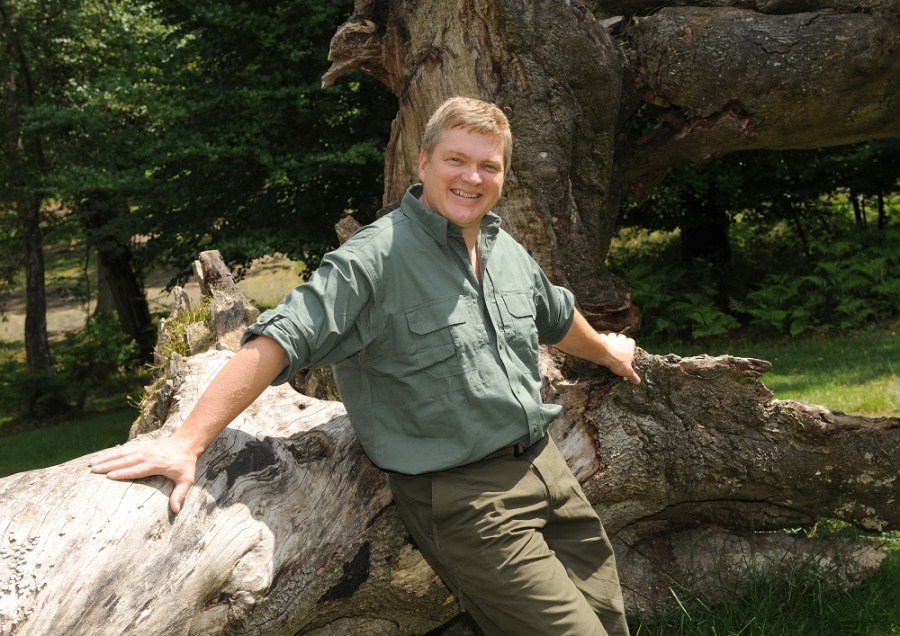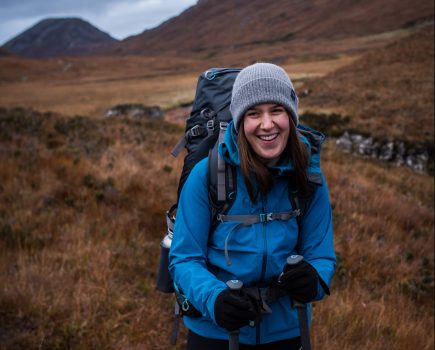TGO’s Will Renwick spoke to Britain’s bushcraft and survival expert, Ray Mears, ahead of his March tour
For previous lecture tours you’ve shared your own experiences of the wild, I see you’re taking a different approach for the Tales of Endurance tour…
I’ll be looking at stories that have inspired or informed me through the years. Some of them are about people who survived and some are about people who didn’t survive, but they’ve all got something to tell us, there’s something we can learn from them. The first part of the show will explore the stories, where things didn’t go so well, enabling me to talk about basic knowledge and information that we should all have to keep us safe, both in and out of the world; things that people assume that they know, but in my experience, more often than not, they don’t.
I’m also going to look at some of the stories of young adventurers, some of whom disappeared in recent years, people in their twenties who went out seeking adventure and got into trouble in the wild. The last thing we hear from them is a phone call and then the battery dies. I think at a young age it is important that you do get out and have rights of passage experiences in wild places but there are a few things we can do to make sure that you don’t get into trouble. I want to look at how young adventurers can be safe, exploring the basic information that can make all the difference.
In the last part of the tour, I’ll be talking about some astonishing tales of endurance, situations that people have lived through. Stories that we should know that will inspire and empower people to deal with other problems in their own lives.
Are too many people throwing themselves into experiences unprepared nowadays?
One death is too many because they’re avoidable. It’s harder for young people today to gain understanding of the outdoors than it was in my generation. When I was a kid we played outdoors, we didn’t stare at computer screens – I’ve never played a computer game myself. We got into scrapes and we got out of scrapes and that was something progressive. The problems faced got bigger as we did. Today, people grow up largely studying at school or playing computer games. By the time they do go out in their late teens or early twenties they’re of course very excited, but there isn’t that background experience to rely on. Under those circumstances it’s very easy to take one step too far in the wrong direction.
How vital are these survival skills for those seeking adventure specifically in a UK environment?
To a huge extent. Our mountains are lethal if you make the wrong turn or you don’t take the right equipment of food with you. Just because Britain is small, don’t underestimate the severity of the weather that can be experienced. Perhaps a difference we have here in Britain is that it’s easier to be rescued than anywhere else, if someone puts in a phone call on the mobile, it’s likely they’re going to be located, whereas in other parts of the world you can be too far out.
If people are out of touch with outdoor skills today, what’s the best way they can reclaim them?
Training is important, it’s vital that we encourage youngsters and that schools encourage them as well, to bring back those opportunities for getting outdoors. Mollycoddling is a good term, but I don’t think it’s quite the right term, perhaps it’s techno-coddling. We need to give kids the opportunity to touch nature at a much younger age. To be a little bit adventurous, a little daring.
Today there’s an arrogance that comes with equipment. People think that if they buy the right equipment then they will therefore know how to deal with a situation, but when they actually find themselves injured or lost on a hill side and alone, then they are suddenly faced with reality.
Would you ever take a GPS with you?
Yes definitely, but I’ve done trips without and I’m quite happy to go without. There are all sorts of useful modern tools, but I know how to use them because I know how to do without them. That’s really important.
In some outdoor stores in this country, it’s sometimes hard to find a good compass – it’s easier to find a GPS. A compass should always be your first stop when learning navigation.
Do you think we’ve now realised how out of touch we are becoming and a reverse is starting to happen? Or are we still on that downward slope?
I don’t see the current situation as an up or down, it’s just a new reality of life. There are always going to be people who are sensible enough to realise they need to learn skills, and there are always going to be people who aren’t sensible enough. But the point is that there are a number of people who have never thought about it because no one has ever taught them.
If people are looking to reconnect, would you suggest a specific place in Britain to head to?
Take your pick. Britain is amazing, it’s so full of opportunities it’s staggering. I wouldn’t tell you where I’d personally recommend because I wouldn’t want everyone to suddenly go there…







